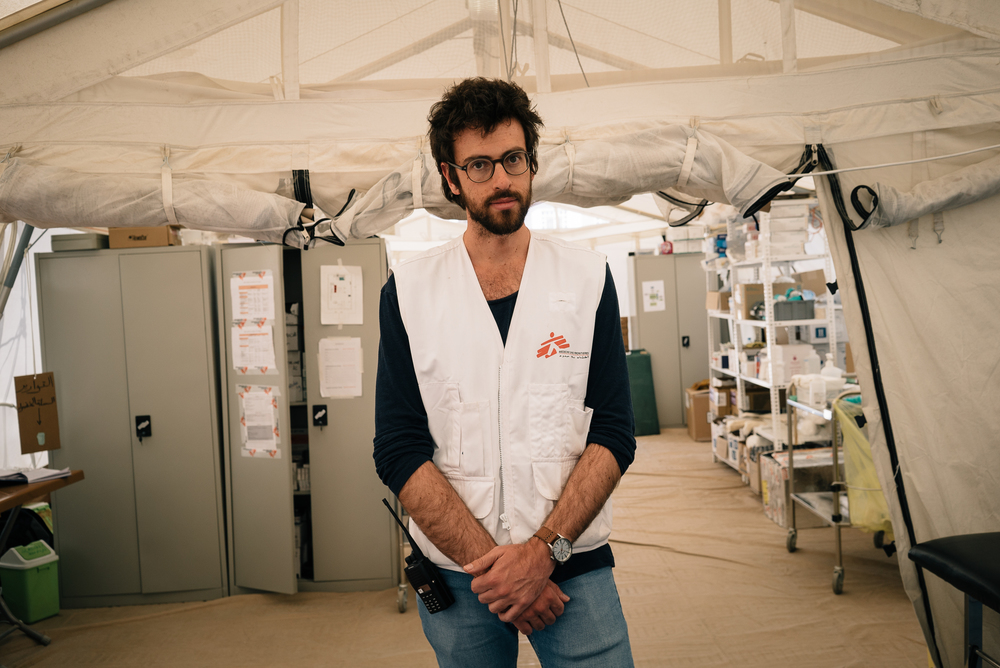 The battle for Mosul is taking place in a densely populated urban centre. Thousands of people are being injured in the crossfire—by explosions, snipers, and air strikes.
The battle for Mosul is taking place in a densely populated urban centre. Thousands of people are being injured in the crossfire—by explosions, snipers, and air strikes.
Sixteen years after the so called “War on Terror” began, most humanitarian actors around Mosul behave in line with how Colin Powell (a previous US secretary of state) described their role in 2001: “NGOs are such a force multiplier for us, such an important part of our combat team.”
There are only a handful of medical actors operating in the highly militarised urban areas around Mosul, including Médecins Sans Frontières/Doctors Without Borders (MSF). Due to security constraints, most have chosen to be entirely embedded with the Iraqi forces, while MSF has tried—with limited success—to distinguish itself as an independent actor.
This is not an abstract dilemma. One MSF hospital south of Mosul, where I recently worked as project coordinator, has been referred to by some of the local community as the “American hospital.” This illustrates the risk that anything “foreign” is seen to be associated with the US military effort. This is despite MSF’s decision to be entirely funded by private donations in Iraq and not by any governments.
Our hospitals are gun-free zones. Our treatment priorities are based solely on a medical assessment and we negotiate with all authorities not to use our hospital for law enforcement. Though better than nothing, these practical demonstrations of independence have not yet succeeded at distinguishing MSF from governments and other groups with a stake in the conflict. This is partly due to the decisions taken by other medical actors to act in alignment with one side of the conflict.
In west Mosul today, the majority of wounded patients first arrive at trauma stabilization points (TSPs) located close to the frontline and embedded within different divisions of the Iraqi national security forces. Some TSPs are run by armed medical personnel, some of whom wear patches on their uniforms that say “Make Mosul Great Again”—a clear reference of allegiance to the US military campaign.
From the TSPs, some patients are referred to a commercial medical company that opened its doors at the end of March. These “stethoscopes for hire” operate as contractors driven by profit rather than the principles that guide humanitarian action in conflict. Other patients are referred to a hospital managed by a Christian organisation. At these hospitals patients are officially screened by security forces against a list of potential suspected Islamic State (IS) members or sympathisers. Using health facilities in this way for law enforcement purposes makes health facilities places to be feared and further aligns healthcare to one side of this conflict. This violates the ethical duties that should guide the medical profession and which the World Health Organisation (WHO) adheres to. Yet it is this same WHO that has subcontracted its emergency health programme to these hospitals incorporating the screening practice.
This is not to say that the TSPs and hospitals close to the frontlines are not saving many lives. There is a clear role for military medicine and even a duty of all fighting forces to extend any medical capacity put in place for their own forces to enemy combatants and civilians if alternatives are absent.
But there is also a vital role for independent civilian health providers, such as MSF, to operate in accordance with the basic principles of impartiality and medical ethics. Independent health facilities allow patients who do not feel safe going to military installations to still access care, whereas the marriage between medicine and the military limits the safe options available to patients. If healthcare is only carried out as a component of the overall military strategy, it undermines the very basis of medical ethics.
The political choice of many of the civilian health actors, such as WHO, to embed themselves and their subcontractors with the Iraqi military allowed for a speedy response to the Mosul crisis, but it has also limited the possibility of developing independent, non-military options for healthcare that many of the wounded might feel safer to rely on. Weapon-free civilian health structures operate in war zones for a reason: to ensure impartiality is respected and that treatment is given based on medical need alone.
The potential longer term consequences are also daunting: when the temporary anti-IS alliance of normally opposing armed actors begins to unravel, the perception of humanitarian actors will likely be tainted by this embedding practice. For now it looks like medical assistance serves the interests of the central state (or its foreign backers)—a state many of the armed groups oppose. The security implications of this for all those trying to work in Iraq in the future could be grave.
The regional implications are also worrying. Inevitably, a comparison is made between the battle for east Aleppo in Syria and now the battle for Mosul in Iraq. Would the WHO have funded Russian medical posts to be embedded with Syrian army units on the frontlines of east Aleppo? Clearly, they did not. And yet the decision to make the equivalent political compromise in Iraq has gone unquestioned.
The decisions of WHO and others in how they work in Iraq are not simply about pragmatically getting as close as possible to the frontlines. These decisions are rooted in donor priorities and a political willingness to align healthcare as part of the battle against the Islamic State. The risks of this approach are clear: if doctor and fighter are seen as one, who can patients trust?
Competing interests: None declared.
